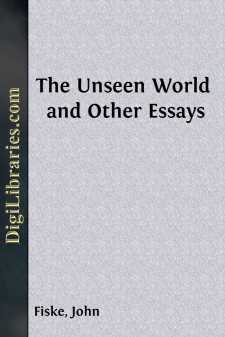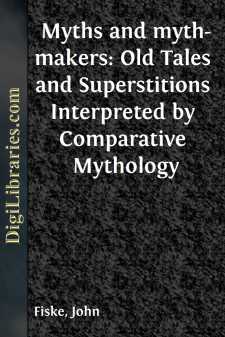Categories
- Antiques & Collectibles 13
- Architecture 36
- Art 48
- Bibles 22
- Biography & Autobiography 813
- Body, Mind & Spirit 142
- Business & Economics 28
- Children's Books 17
- Children's Fiction 14
- Computers 4
- Cooking 94
- Crafts & Hobbies 4
- Drama 346
- Education 46
- Family & Relationships 57
- Fiction 11829
- Games 19
- Gardening 17
- Health & Fitness 34
- History 1377
- House & Home 1
- Humor 147
- Juvenile Fiction 1873
- Juvenile Nonfiction 202
- Language Arts & Disciplines 88
- Law 16
- Literary Collections 686
- Literary Criticism 179
- Mathematics 13
- Medical 41
- Music 40
- Nature 179
- Non-Classifiable 1768
- Performing Arts 7
- Periodicals 1453
- Philosophy 64
- Photography 2
- Poetry 896
- Political Science 203
- Psychology 42
- Reference 154
- Religion 513
- Science 126
- Self-Help 84
- Social Science 81
- Sports & Recreation 34
- Study Aids 3
- Technology & Engineering 59
- Transportation 23
- Travel 463
- True Crime 29
Sort by:
by:
John Fiske
PART FIRST. "What are you, where did you come from, and whither are you bound?"—the question which from Homer's days has been put to the wayfarer in strange lands—is likewise the all-absorbing question which man is ever asking of the universe of which he is himself so tiny yet so wondrous a part. From the earliest times the ultimate purpose of all scientific research has been to elicit...
more...
by:
John Fiske
I. THE ORIGINS OF FOLK-LORE. FEW mediaeval heroes are so widely known as William Tell. His exploits have been celebrated by one of the greatest poets and one of the most popular musicians of modern times. They are doubtless familiar to many who have never heard of Stauffacher or Winkelried, who are quite ignorant of the prowess of Roland, and to whom Arthur and Lancelot, nay, even Charlemagne, are but...
more...



